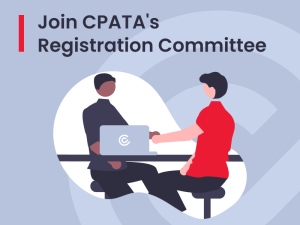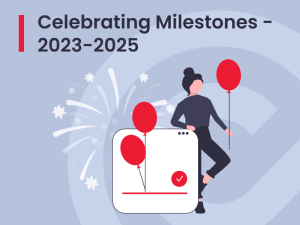The first phase of CPATA’s multi-year competency initiative is nearly complete. CPATA worked with consultant Principia Assessments Ltd. to develop descriptions of the knowledge and skills agents need to provide competent and ethical IP services to their clients. We created two descriptions (technical competency profiles), one for patent agents and one for trademark agents, which will be used to develop agent training requirements, enhanced qualifying examinations and a continuing professional development requirement.
CPATA intends its competency framework to:
- Establish the entry-level competencies for IP assessments, including for entry-to-practice examinations and other parts of the IP agent licensing process
- Guide Canadian IP agents in understanding the competencies associated with safe, effective, and sustainable practice
- Support Canadian IP agents in their self-assessment and ongoing learning, including their identification of priorities for professional development
- Define ‘competence’ in a manner that guides future regulatory and educational activities
- Inform intellectual property educators about priorities for learning
- Guide employers and training supervisors to develop experiences and practices that support competence training
- Advance CPATA’s Regulatory Objective that licensees deliver ethical and competent services
CPATA does not intend for this profile to:
- Include every competency that an IP agent in Canada might need
- Create any obligations or requirements of IP agents in Canada with respect to any third party
- This competency framework and related documentation are intended to be “living documents”; they will evolve and change as the practices of IP agents in Canada evolve and change.
CPATA’s competency frameworks will be “living documents”; evolving as Canadian IP practices change.
The competency profiles development process was extensive and multiphased. Many practitioners assisted. Key steps included:
- Background research. Preliminary background research included semi-structured interviews and desk research (Canadian and international) relevant to the competencies of IP agents.
- Legacy mapping. Two subject matter expert groups (legacy mapping groups) reviewed 6 years of qualifying examinations to document the competencies the examinations tested, at what cognitive levels, and in what proportions. This supplied a starting point for competency development.
- Competency development. Two subject matter expert groups (competency development working groups) developed draft technical competencies, performance criteria, and knowledge concepts. Each group met for 5 two-hour sessions and completed multiple between-session surveys to construct draft technical profiles.
- Translation and translation review. A French team translated the draft technical profiles. Because the initial development was in English, CPATA retained two additional groups of Francophone subject matter experts to provide feedback on the bilingual profiles.
- Stakeholder consultation. CPATA conducted additional stakeholder consultation, considering feedback from CPATA’s Board of Directors, its six committees, Exam Boards and legacy mapping working group members.
Our next phase is to confirm that the draft profiles match industry IP practices and requirements. This involves a large-scale validation study for licensees. As a new independent professional regulator, CPATA requires the input, perspectives and expertise of patent and trademark agents to verify its work. The competency profiles belong to the profession. They will guide aspects of professional regulation and how it fits with a broad IP Strategy for years to come.
Starting September 12, we invite all licensees to contribute to this vital work. The process will allow CPATA to collect and incorporate feedback from practitioners into the draft competency profiles.
Licensees will receive an e-mail from info@cpata-cabamc.ca with the subject: “Competency Profiles – Your Feedback / Profils de compétence – vos commentaires” on September 12 with a link to provide feedback.
If you have any questions or comments about the competency initiative, please contact registration-inscription@cpata-cabamc.ca.






